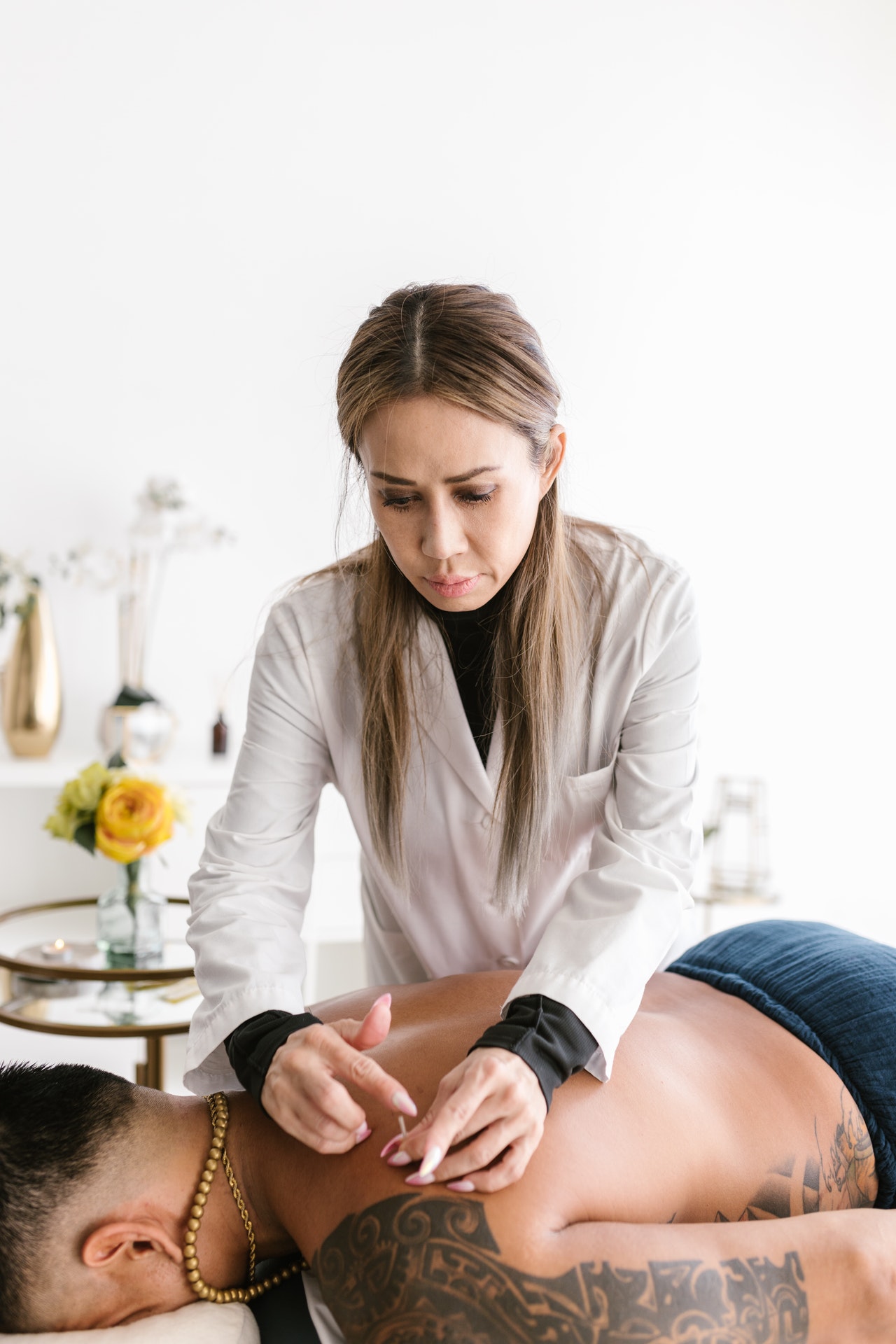Acupuncture has a good reputation for treating a number of musculoskeletal conditions, but what about soft tissue damage, such as sprains and strains, bruises, contusions, and tendonitis? In this article, we look into the effectiveness of acupuncture on soft tissue damage.
So, is acupuncture good for soft tissue damage? Studies have reported that acupuncture can offer long-term benefits for soft tissue damage, such as pain management and, in some cases, can even offer a complete resolution to the condition.
Read on to learn more about the effects of acupuncture on soft tissue damage.
Does Acupuncture Help Soft Tissue Damage?
Acupuncture has been reported to be particularly effective on soft tissue damage, offering a number of benefits, including improving circulation, stimulating the release of endorphins and other natural painkillers, reducing inflammation, and reducing the risk of recurrence. Whilst such benefits help to reduce the symptoms of soft tissue damage, such as pain and swelling, they also help heal the injury and/or speed up recovery time.
A 2003 study supports this, reporting that, of 201 participants, 59% reported clinical resolution to their condition, whilst 33% reported remarkable improvement.
What is Soft Tissue Damage?
Soft tissue damage is simply an injury to the body’s soft tissues, such as:
- Ligaments
- Muscles
- Tendons
- Nerves
- Cartilage
Such injuries typically present with pain, swelling, bruising, and reduced range of motion. In some cases, such as sprains and strains, it may feel as if the bone is broken and, as such, medical attention may be required to confirm.
How Does Acupuncture Work for Soft Tissue Damage?
Acupuncture works by increasing the circulation of blood flow throughout the body (1, 2), delivering essential oxygen and nutrients to the injured area, encouraging healing and a faster recovery time. Meanwhile, the acupuncture needles stimulate the release of endorphins and serotonin - the body’s natural painkillers to help manage localised pain without drugs or invasive methods.
What Soft Tissue Conditions Can Acupuncture Help With?
Acupuncture is often well regarded as a CAM therapy (complementary and alternative medicines) for musculoskeletal conditions, and various studies show promise for the positive effects of acupuncture on soft tissue injuries (1, 2). However, most studies agree that further research into the topic is needed to fully understand the effects of acupuncture on soft tissue.
That said, here are a few soft tissue injuries that acupuncture is said to be able to help:
Sprains & Strains
Acupuncture has been reported to reduce pain levels significantly in cases of ligament sprains, as well as working to restore a good range of motion (1, 2).
Tendonitis
Multiple studies (1, 2) have shown positive results in the use of acupuncture for tendonitis conditions. Studies reported that acupuncture may offer pain relief, a reduction in swelling, and an improved range of motion.
Benefits of Acupuncture for Soft Tissue Damage
We’ve already touched on how acupuncture works for soft tissue damage, but here are the key benefits:
Pain Relief
One of the key benefits of acupuncture across the board is pain relief. When inserted into the body, the acupuncture needles stimulate the release of endorphins and other naturally occurring chemicals in the brain that act as a natural painkiller (1). This effect can be both long and short-term depending on the condition.
Improved Circulation & Reduction of Inflammation
Inserting needles into the body helps to improve both blood vessel dilation, and improve circulation (1, 2). In turn, this helps to more efficiently deliver oxygen and nutrients to the injured area, helping it to heal. What’s more, the improved circulation may also help to reduce inflammation of the affected area (1).
Reduction in Recovery Time
Further to the above benefits, acupuncture may also help to reduce recovery time. A study that saw a 59% clinical resolution in soft tissue injuries as a result of acupuncture also reported that a combination of distant points plus local points, moxibustion and auriculotherapy reduced the number of sessions that a patient needed, and increased the time between sessions.
Final Thoughts
Various studies have shown that acupuncture shows promise as a legitimate CAM therapy for soft tissue damage. The key common reported benefits of acupuncture; pain relief, inflammation reduction, improved circulation, and a reduction in recovery time all lend themselves very well to soft tissue injuries - soft tissue injuries tend to be painful for a period of time, and will often be inflamed, to which an improvement in circulation will naturally help to aid recovery.
However, it is important to note that many researchers state that further research and more clinical trials are needed to fully understand the effectiveness of acupuncture in this capacity.
If you’re a medical professional interested in incorporating acupuncture into your existing practice for treating soft tissue damage, Breeze Academy offers a range of acupuncture CPD courses to help you get started, or update your existing skills. Our foundation level acupuncture course is perfect for beginners or, if you’re looking for more advanced courses, try our acupuncture in sport course, or our acupuncture for shoulder, elbow and wrist pain.
